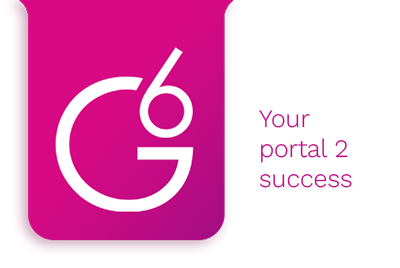Have you ever experienced the frustration of losing a customer, despite your tireless efforts to provide an exceptional service or product?
Customer retention is something several small businesses struggle with because they haven’t learned the strategies and tools to create a loyal audience!
Hi, my name is AJ! I recently sold my business for multiple seven figures. Now, I operate Small Business Bonfire to share the many lessons I learned!
For a while, I focused on constantly finding new customers. However, we saw incredible success when my team and I implemented CRM strategies to build a loyal fan base!
Keep reading if you want to discover how to turn one-time buyers into the most loyal audience you’ve ever seen!
Key Takeaways
Customer retention refers to how many repeat clients a company has.
Understanding customers better helps companies cater to their needs, encouraging them to buy again.
Retention is crucial because selling to repeat buyers is cheaper than new customers.
Related Reading: Small Business CRM
SBB Featured Partners
First things first, it’s essential to understand what customer retention is and why it’s so crucial for small businesses to pay attention to.
Customer retention is how well a company can keep customers engaged with its products or services.
In terms of customer relationship management (CRM), it’s a strategy that aims to do the following things:
Increase customer loyalty Decrease customer churn
Some examples of customer retention strategies include:
A loyalty program A points system A VIP program Personalizing the experience for existing customers Re-engaging at-risk customers Placing more value on customer service
Essentially, retention aims to get more repeat customers to your company!
While getting new customers is undoubtedly critical for successful businesses, repeat buyers are just as important!
Some reasons a customer retention strategy is essential for companies include the following:
Retaining customers is more cost-effective than finding new onesIt’s more challenging to establish a meaningful relationship with new customers than an existing one Losing a customer (customer churn) is VERY expensive Repeat buyers spend more money in the long run
As you can see, creating an excellent customer experience is crucial!
Calculating customer retention rate is much more manageable than most people assume.
For this simple formula, you’ll need the following metrics:
S: Customers you have at the start of the period E: Customers you have at the end of the period N: Customers you acquire during the period you’re measuring
Therefore, the equation looks like this:
Customer Retention Rate = ((E-N)/S) x 100
Take a fictional example from Fast Threads, a clothing brand that sells eco-friendly items.
At the beginning of the month, Fast Threads had 130 customers.
Throughout the month, they lost nine customers and gained 23.
So, for a CRR calculation, they use the following numbers:
Customers at the end of the month: 144 Customers at the start of the month: 130
In this example, the customer retention rate is:
((144-23)/130) x 100 = 93% retention rate
You and your team can use this formula to gain insights into customer satisfaction, loyalty, and more!
There are four stages of customer retention, including the following:
Segmentation Service System Selling
Here’s what you need to know about each stage!
Segmentation is the initial stage of customer retention.
During this stage, teams categorize their customers into distinct groups based on specific criteria such as:
Their buying behaviorAgeInterestsInteractions with marketing campaigns Social media activity Interactions with the company website
Customer segmentation is a strategy that allows you to understand your customer’s needs and preferences better.
As a result of knowing your target audience better, you can tailor your messages, products and services, and communication to suit each group.
Also, delivering personalized experiences makes you more likely to retain your buyers, promoting customer loyalty and engagement.
Put simply, customer segmentation empowers businesses to meet their customers where they are in a way that resonates best with them!
The service stage in customer retention revolves around providing exceptional, personalized customer service that meets and exceeds customer expectations.
Exceeding your target audience’s expectations involves doing the following things:
Timely responsesSolving customer queries effectivelyProviding helpful, relevant informationCreating in-depth customer profiles
By delivering top-notch customer service, businesses can cultivate stronger customer relationships.
As a result of excellent customer relationships, your team can improve customer satisfaction and loyalty!
The third stage revolves around creating an effective system for your customer retention strategy.
Implementing effective systems and technologies, such as CRM software, ensure you manage customer relationships correctly and offer seamless interactions.
These systems help track the following metrics:
Customer behaviorEngagementPurchase patterns
With this data, your team can create a personalized customer experience and predict future sales.
An excellent tactic to utilize while creating customer retention systems is automation.
By automating processes and ensuring all customer-related data is in one place, businesses can deliver a consistent and high-quality customer experience.
In the end, efficient systems enhance customer loyalty and retention!
The selling stage is the final phase in the customer retention process.
Now, businesses focus on promoting products or services that genuinely cater to their customers’ needs and preferences.
Also, this stage is not just about making a sale but ensuring that the product or service adds value to the customer’s life.
When products or services add value to a buyer’s life, it fosters a long-term relationship between the brand and the customer.
Further, leveraging CRM tools can help with the following things:
Understand customer behaviorPersonalize the customer experience experiencePersuade buyers to make repeat purchases
As I’ll detail later, using CRM for customer retention is extremely valuable!
You and your team should focus on retaining existing customers for several reasons.
However, the three primary advantages of improving retention rates include the following:
Increased Profitability
Retaining customers can significantly boost your bottom line.
For instance, because acquiring new customers is more expensive than retaining existing ones, businesses that focus on customer retention often experience increased profitability.
On top of that, repeat customers tend to spend more than new ones, contributing to higher revenue.
Customer Loyalty and Advocacy
When businesses successfully increase customer retention, they build brand loyalty.
Brand loyalty is more important than most small business owners realize!
These loyal customers not only continue to buy from the business, but they also become brand ambassadors!
Further, loyal customers spread positive word-of-mouth marketing, recommending the business to their friends and family.
Remember, word-of-mouth marketing is free advertising that brings in new customers at no additional cost!
Insights for Improvement
A customer retention strategy often involves gathering feedback and learning more about customers’ needs and preferences.
This customer information is invaluable for businesses looking to improve their products or services, customer experience, etc.
Also, businesses can continue enhancing their products or services by understanding what keeps customers returning.
As a result, this leads to better customer experiences and, ultimately, more growth!
Do things impact how well a company can retain customers more than others?
The answer is yes!
For instance, the following details significantly impact retention rates:
Poor customer support Lack of personalization in the buying process When customers feel like the company doesn’t understand them
Let’s look at each of these things in closer detail!
Poor customer service can significantly impact customer retention rates, leading to a higher churn.
For instance, dissatisfaction might push customers to explore alternatives and potentially switch to competitors when they don’t feel valued or treated well!
Therefore, businesses with poor customer service risk losing their existing customers and potential future business, as negative experiences can deter new prospects.
The absence of personalization in customer interactions can make it challenging to retain customers.
Buyers today expect customized experiences that resonate with their unique needs and preferences.
Therefore, when businesses fail to offer such tailored experiences, customers may feel undervalued and disconnected.
As a result of this disconnection, it leads to dissatisfaction and disloyalty.
So, the lack of personalization may push customers towards competitors who can better cater to their expectations!
When customers feel like a company doesn’t understand their needs, it negatively impacts their perception of the brand.
As a result, the company will have difficulty increasing retention rates.
Why is it crucial for customers to feel heard?
When companies take actions to understand their target audience, it promotes the following things:
Higher client satisfaction levels More brand loyalty Positive customer feedback An increase in retention rates More long-term relationships
Lastly, if a brand overlooks or neglects its customers’ voices, it can lead to frustration and drive customers to switch to competitors!
Let’s consider customer acquisition and retention as making a new friend and keeping an old one.
Customer acquisition, like making a new friend, is about attracting people who don’t know your business yet.
Customer acquisition aims to show prospects what’s unique about your brand and convince them to purchase.
Acquiring customers can take a lot of effort (like trying to win over a new friend at school), and sometimes it can get costly, too!
On the other hand, customer retention is about keeping the customers (or friends) you already have by ensuring the following details:
They’re happyYour team is meeting their needsYou give them reasons to keep buying from you
Just like keeping an old friend, it’s often more manageable and less costly than constantly trying to make new ones!
A CRM system is essential to increase customer retention because the software streamlines and personalizes customer experiences!
Here are four key ways CRM software can help improve customer retention:
Personalization
A CRM system can store vast amounts of customer data, including the following things:
Purchase historyPreferencesWebsite interactions with your brandSocial media activity Effective marketing campaigns
This data allows businesses to tailor their products, services, and communications to individual customers.
As a result of this personalization, customers are happier and more likely to be loyal to the brand.
Improved Customer Service
CRM software helps businesses provide superior customer service by tracking and managing all customer interactions in one place.
A centralized hub lets your team quickly address any issues or inquiries your prospects and existing customers have.
As previously mentioned, satisfaction and retention rates improve when customer support is excellent!
Customer Segmentation
Grouping your target audience can be challenging without a powerful CRM system.
Fortunately, CRM systems enable businesses to segment their customers efficiently.
Remember, you can segment customers based on the following attributes:
Purchasing behaviorDemographics Engagement levelsGeographic location Marketing messages Social media activity
This segmentation allows for targeted marketing efforts that resonate with specific groups.
As a result, you improve customer relationships with your brand and increase their likelihood to buy from you again!
Predictive Analysis
Many CRM systems come equipped with predictive analytics capabilities.
These tools allow businesses to predict future buying behaviors based on historical data.
Therefore, teams can better anticipate customer needs and provide timely and relevant support.
This proactive approach can improve customer satisfaction and increase retention rates!
Creating a CRM customer retention strategy is vital to boost the number of satisfied customers your brand collects!
But how can you use CRM technology to improve customer retention?
Below, I’ve listed some of the best CRM retention strategies!
Building an incredible customer journey is integral if you want to improve customer retention because it fosters a positive and seamless experience that keeps customers coming back.
Utilizing CRM tools, businesses can map out each touchpoint, allowing them to anticipate the customers’ needs and respond promptly and appropriately.
Predicting needs nurtures a sense of value and trust among customers and contributes to overall satisfaction!
Utilizing customer data can greatly improve customer retention.
Customer data lets businesses understand their customers’ behavior, needs, and preferences more deeply.
This knowledge allows companies to tailor their offerings and interactions to match each customer’s expectations, increasing satisfaction and loyalty.
Also, data-driven insights can help identify at-risk customers early, providing an opportunity to engage them with personalized measures and prevent attrition!
Setting customer expectations is a crucial measure in any successful CRM customer retention strategy.
Businesses eliminate ambiguity and potential disappointment by clearly defining what customers can anticipate from products or services!
On top of that, consistently meeting or exceeding these set expectations fosters trust, ensuring customers remain committed to the brand over time.
Listening to your customers will help boost customer retention because it builds a deeper understanding of the following things:
Customer needsCustomer preferences Pain points
By actively requesting customer feedback, businesses convey that they value their customer’s opinions and are willing to improve based on their needs.
This, in turn, fosters brand loyalty and improved customer satisfaction, which are key drivers of retention!
Personalizing your CRM enhances customer retention by providing a tailored experience that meets your company’s requirements.
For instance, when your CRM includes tools and functionalities that meet your needs, you enjoy the following things:
A more efficient workforce More time to focus on customers Streamlined business processes
Essentially, personalizing your CRM software ensures the programs and tools work precisely how you need them to!
Continued follow-ups aid in customer retention by demonstrating that the business values the customer’s needs and is proactive in ensuring their satisfaction.
Also, this consistent communication does the following things:
Helps resolve any potential issues swiftly Fosters stronger relationships and trustImproves customer feedback Drives more loyal customers
Customer retention automation within a CRM platform must be an essential part of your strategy!
CRM automation helps retain existing customers by providing timely and personalized customer interactions.
Automated processes include things such as:
Follow-up emails Personalized offers based on purchase historySending requests to gather customer feedback
Offering customers the “White Glove Treatment” goes beyond standard service.
This treatment means you and your team do everything and anything to create an exceptional experience for clients.
This personalized service meets customer expectations and consistently exceeds them, ensuring your brand acquires the most loyal customers!
Generating customer reports with a CRM tool can improve customer retention by providing in-depth insights into customer behaviors and interactions with your business.
Your team can use these insights to do the following things:
Fine-tune your strategiesPredict customer needsPersonalize experiencesBuild stronger, long-lasting relationships with your customers
These insights ensure you keep customers engaged with your brand long after they make their first purchase!
Here are some tips and tricks I picked up while building my business that will help you retain clients!
The right customer retention tools are crucial.
Investing in the best-suited CRM for you and your team may take considerable time.
However, when you have the best technology, everything runs smoother, and you can retain buyers!
Ensure your team meets regularly to identify weak points in your sales processes, marketing tactics, and customer service strategies.
When you can identify what causes customer churn, you know what NOT to do.
After all, why would you want to continue making the same mistakes over and over again?
Customer loyalty programs are extremely effective for several types of businesses in various industries.
Therefore, it doesn’t hurt to try a loyalty program and see if it boosts your retention rate.
Typically, customer loyalty programs involve a points system where customers earn points for each purchase they make.
Then, once they hit a certain point threshold, they receive a free product or discount to use in the future!
Lastly, it’s crucial to track how satisfied your customers are and with what aspects of your business processes.
Ensure you note what’s working and what’s not.
Therefore, you and your team continually improve and create a top-notch buying experience for potential and returning buyers!
Here are two real-world examples of customer retention tactics in action!
Starbucks Coffee Company’s loyalty program is an exceptional example of a CRM customer retention strategy!
Through the Starbucks Rewards program, customers earn stars for every dollar spent, which can be redeemed for free drinks, food, etc.
By personalizing the rewards and providing exclusive benefits such as birthday treats, Starbucks manages to keep its customers engaged and loyal.
Amazon Prime is another noteworthy CRM customer retention strategy.
This membership program offers the following things:
Fast, free delivery on eligible itemsUnlimited streaming of moviesTV shows and musicExclusive shopping deals
By continually adding value through new features and benefits, Amazon ensures a high retention rate among its Prime members, driving repeated purchases and fostering long-term customer loyalty.
So, is customer retention important? As you’ve seen throughout this article, retaining customers is extremely valuable!
Creating loyal customers is valuable because they’re less expensive to sell to, purchase more often, and offer word-of-mouth marketing.
And while customer retention can be challenging, using a CRM tool makes the process SO much more manageable!
How will your company retain customers? Let us know in the comments section below!
The post CRM Customer Retention Strategies for Small Businesses appeared first on Small Business Bonfire.
—
Blog powered by G6
Disclaimer! A guest author has made this post. G6 has not checked the post. its content and attachments and under no circumstances will G6 be held responsible or liable in any way for any claims, damages, losses, expenses, costs or liabilities whatsoever (including, without limitation, any direct or indirect damages for loss of profits, business interruption or loss of information) resulting or arising directly or indirectly from your use of or inability to use this website or any websites linked to it, or from your reliance on the information and material on this website, even if the G6 has been advised of the possibility of such damages in advance.
For any inquiries, please contact [email protected]




